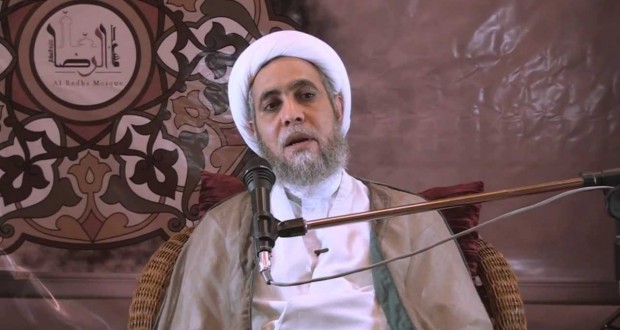
RNA – During a lecture, Hujjat al-Islam Mohammad-Hasan al-Habib, a Shi’a cleric from Saudi Arabia, condemned the recent terrorist operation against worshippers at the Imam Ali (A) Mosque in the town of al-Qadih in Saudi Arabia’s predominantly Shi’a Eastern Province.
The remarks came a day after a bomber blew himself up in the mosque as more than 150 people had gathered for Friday prayers. At least 21 people lost their lives and 97 others sustained injuries in the bomb attack. Later in the day, the Takfiri ISIL terrorist group claimed responsibility.
His Eminence emphasized that the perpetrator of this incident was not the single person who blew himself up in the mosque and added that even ISIL and those like ISIL are not the main causes of this act of terrorism. “Rather,” he said, “this incident was due to the Takfiri ideology and thought of those who are involved in these types of crimes.”
Hujjat al-Islam al-Habib reminded the believers gathered of the November 2014 attack on the Saudi village of al-Dalwah, where three ISIL masked gunmen shot at a group of Shi’as at a mosque on the solemn day of Ashura killing at least seven and injuring dozens.
He stated that the Muslims of al-Dalwah were the victims of a great crime and today, the terrorism against them continues in al-Qadih. “What guarantee is there that Takfiris will not launch another attack against the innocent Muslims of the region in the near future?” he asked.
Hujjat al-Islam added that by reviewing the media broadcasts across the region, we can see the dissemination of seeds of hatred among Islamic countries and Muslims. He emphasized that the leaders of Islamic countries must prevent the proliferation of seditionist activities so that such attacks do not occur again.
He said that the Saudi authorities have announced that taking responsibility for these kinds of events is the duty of the authorities who have done nothing to prevent the spread of the Takfiri ideology in the country and have neglected the dangerous consequences of extremism that is destroying their country.
The prominent scholar criticized the short-sightedness of the Saudi authorities and asked them to officially recognize the Shi’a school of thought, which has many followers in Saudi Arabia, and accept it at all political and administrative levels.
111/112